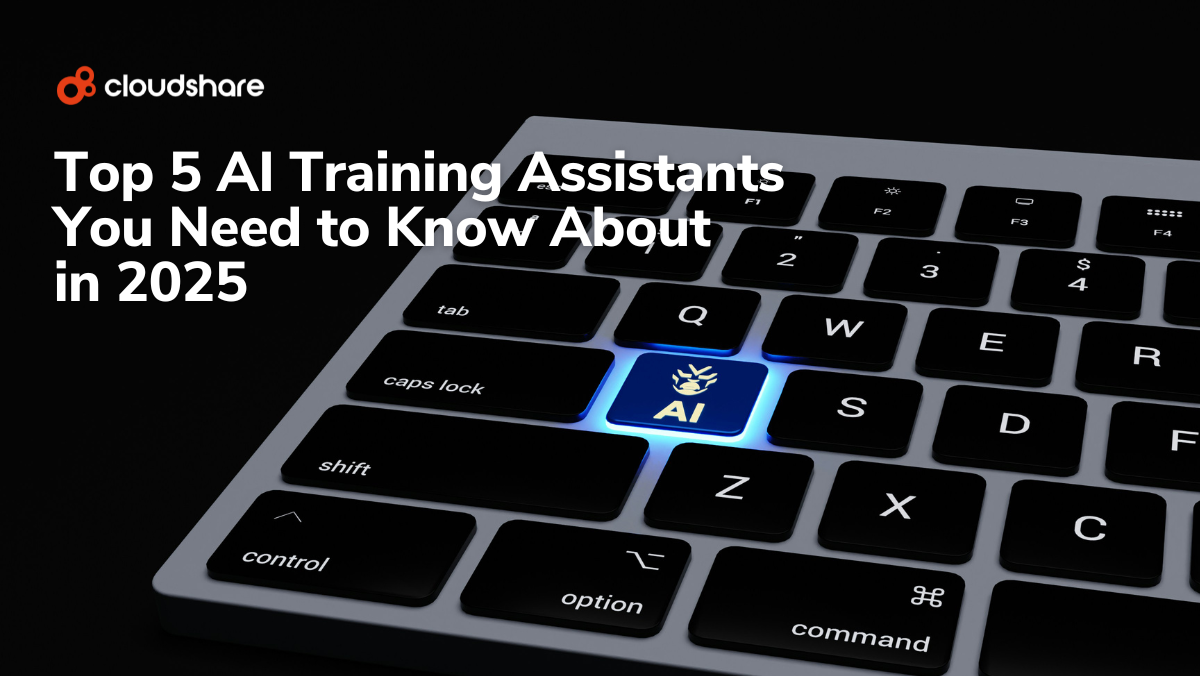
AI has quickly become a core part of corporate learning and development. But to use it effectively, you need two things: a clear understanding of what the technology can (and can’t) do — and the right tools to bring it to life.
That’s easier said than done. With thousands of AI-powered platforms flooding the market, it’s hard to separate the signal from the noise. That’s why you’ll find this list useful: a rundown of standout AI training assistants that can actually move the needle for enterprise L&D.
Each of the tools below brings unique capabilities to the table, whether you’re focused on onboarding, customer education, compliance, or upskilling.
Key Takeaways
- AI training assistants streamline onboarding, skill development, and learner support.
- Tools like MoveWorks and Lindy offer broad integration and cross-functional use.
- NLP-driven tools like Cognii deliver adaptive, personalized feedback.
- Simulation platforms like Retorio boost real-world skill application.
- Choosing the right assistant depends on your training goals and tech stack.
Related Content: 7 Top Tips to Effectively Use AI in Corporate Training
MoveWorks
Enterprise-Grade Agentic Support
MoveWorks automates employee training and support across multiple domains while supporting over 100 languages. It also integrates with a multitude of workplace communication and collaboration tools, including Microsoft Teams, Slack, Jira, Salesforce, and Google Workspace. To put it another way, the solution is a combination of technical support, a knowledge base, and a training companion.
Cognii
AI-Powered Tutoring
Cognii is a virtual AI training assistant that leans heavily on advanced natural language processing. Designed and optimized for educational conversations, it’s able to parse and give feedback on written answers to complex, open-ended questions. Pair that with its adaptive learning capabilities, and it’s an excellent tool for onboarding, compliance, customer education, and skill development alike.
Lindy
Purpose-Built Agentic AI
Although not exclusively an AI training assistant, Lindy is more than capable of supporting your corporate learning and development efforts. Notable for its cross-platform integration, the assistant can connect to over 2,500 apps and services. You can use it to create and deploy AI agents for everything from learner support to workflow automation and knowledge management.
Lindy is also highly flexible and designed to integrate readily into your L&D technology stack.
Retorio
Simulation-Based AI Sales Coaching
Retorio’s claim to fame is its advanced behavioral intelligence engine. Built on research from the Technical University of Munich and MIT, the standalone AI coaching platform is able to generate lifelike simulations covering a range of real-world business challenges. In addition to ingesting your company’s onboarding materials, Retorio features advanced predictive analytics and the ability to map training outcomes to existing KPIs.
It also integrates readily with most CRM and HRM systems.
Jungle AI
Convert Training Content to Interactive Learning
Although it was originally marketed as an educational platform for students, Jungle AI has since gained widespread popularity in corporate training.
As it turns out, the same features that made it an excellent study companion also proved invaluable for both onboarding and professional development. Usable independent of existing infrastructure, the cross-platform AI is capable of converting static training content into dynamic, interactive resources like flash cards and practice scenarios.
It also features a powerful personalization engine that actively adjusts content to each trainee, alongside built-in progress tracking analytics.
Make the Most of AI in Customer Education
While this list focused primarily on employee training, the same tools can supercharge your customer education programs. AI assistants can help you deliver real-time support, simulate product scenarios, and personalize learning experiences at scale.
But great tools aren’t enough on their own. To get results, you need to understand how each platform fits into your broader learning strategy — and how to get the most value from its features.
To help you get there, start with our on-demand workshop Hands-on AI: Tactics, Tips, and Practical Advice for CEd professionals.
After that, if you’re interested in learning more about AI in L&D, you can also watch our on-demand webinar, The Six Disciplines for Using Artificial Intelligence in Customer Education.
Lastly, feel free to book a demo with CloudShare, and we’ll show you how our virtual labs pair perfectly with AI-driven education.
FAQs
What are the top use cases for AI training assistants in corporate learning?
AI training assistants excel at delivering dynamic, personalized training at scale, creating personalized learning paths that adjust to each trainee’s individual needs. Available 24/7, they can also provide real-time, conversational learner support. Finally, learning and development professionals can use AI training tools to automate tedious administrative tasks such as scheduling and tracking.
How do AI training assistants differ from traditional learning platforms?
AI training assistants augment corporate training by acting as learning companions. Much like a standard virtual assistant, they can answer questions about content, provide tailored guidance to trainees, act as virtual coaches, and even run AI-powered hands-on scenarios. They’re basically intended to work alongside traditional learning platforms.
Can AI assistants personalize training based on employee performance?
Yes they can, and this form of adaptive learning is actually one of the most common use cases for AI. Assistants can track everything from progress, usage, and quiz results to on-the-job data in order to dynamically adjust learning paths, training content, and guidance.
What features should I look for in an AI training tool?
The most effective AI training tools generally share the following characteristics:
- Natural language processing for parsing and responding to user queries
- Integration with your existing L&D technologies
- Content generation capabilities
- Mobile accessibility
- Multi-language support
- Support for integrating company-specific knowledge
- A powerful personalization engine
Are AI training assistants effective for onboarding and upskilling?
Yes, through tailored learning paths, just-in-time guidance, and targeted content that evolves with each employee’s knowledge, expertise, and role. By supporting employees with AI assistants, an organization can improve ramp-up times, engagement, and knowledge retention.




